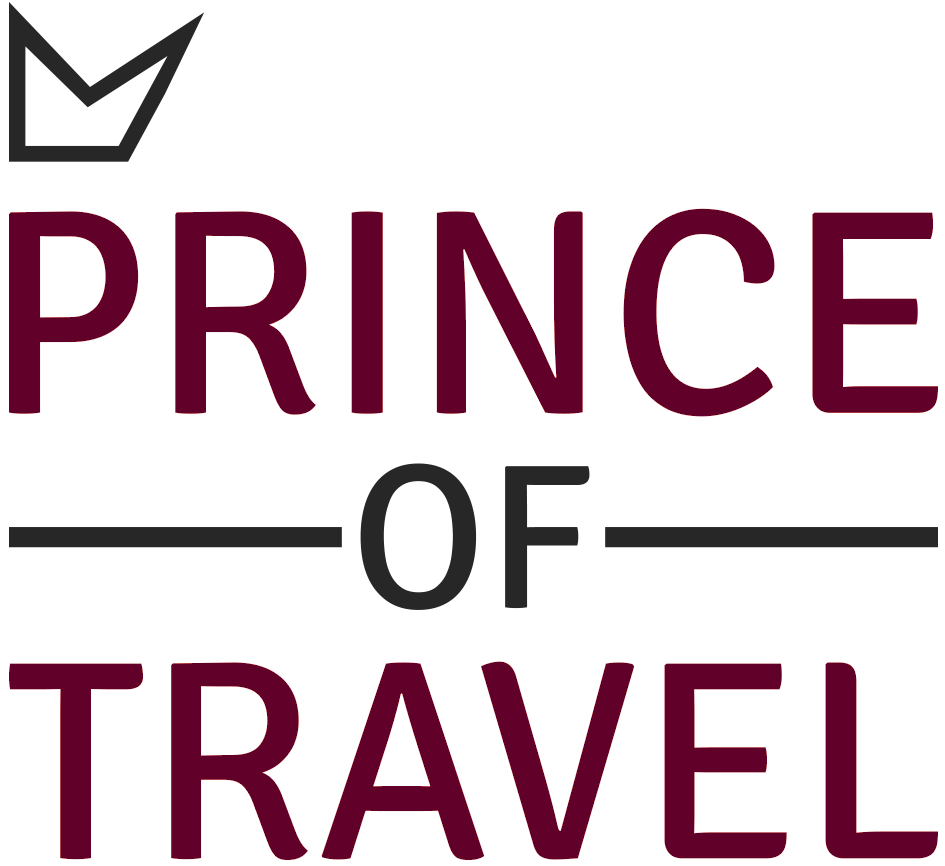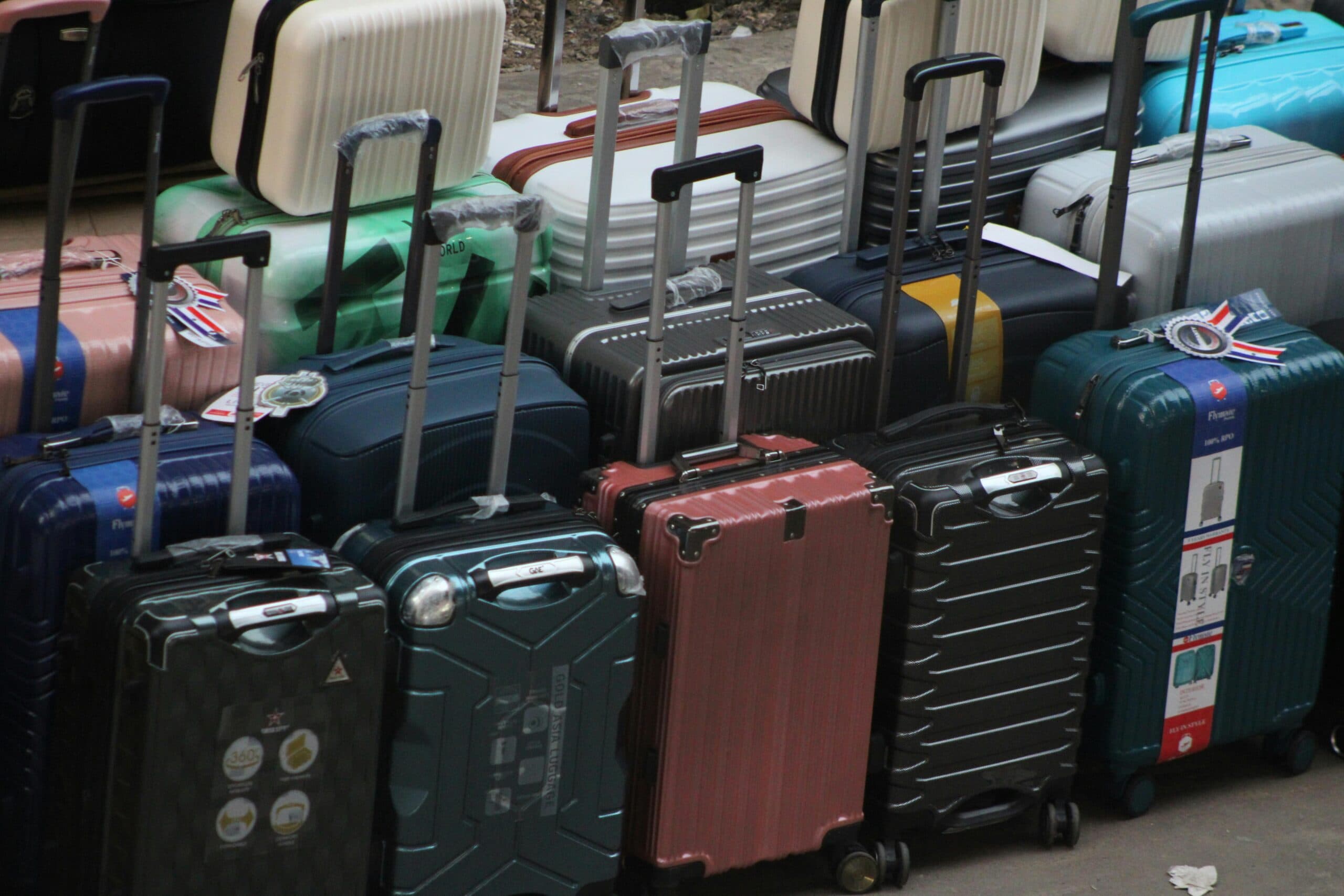How to Approach Difficult Award Searches

Recently, I’ve had a number of Points Consulting sessions that have required some creative thinking to solve some Miles & Points conundrums. I’m often approached with requests to go to popular destinations during popular times in popular cabins, which can be a very difficult task.
In this post, I thought it would be useful to share some of the strategies I use when approaching difficult award searches. Furthermore, I’ll share some specific examples of tricky requests and how we managed to fulfill them.
1. Frontloading
Prior to beginning an award search, it’s important to know what’s available and where to look for it.
If you’ve been in the Miles & Points game for a while, you’ve likely diversified your earnings to make use of numerous currencies during your travels. Perhaps this came after exhausting many options in one program and you’re looking to experience something new, or perhaps you’re just ready to branch out and explore what else is out there.
As we know, different loyalty programs have different sweet spots; why pay more if you don’t have to? Booking ANA First Class with Virgin Atlantic Flying Club instead of Aeroplan is a great example of this.
After getting a sense of which currencies are available to use for a redemption, it helps me visualize the possibilities out there. Ideally, you either have points already stashed in loyalty programs that span across several airline alliances, or you have a transferable currency, such as American Express Membership Rewards, that can be divvied up after you’ve found space.

Even less flashy currencies, such as Air Miles or WestJet Dollars, can be useful in the event of needing to take a positioning flight to a major hub with better award space. Stomaching a short flight on a low-cost carrier can also be a way to better position yourself for success.
With this information in mind, I then turn my attention to narrowing in on routes for the requested redemption. One of my favourite tools to assist with this is FlightConnections.
Many times, when exploring which routes are possible with the available points currencies, I’ll learn about a route that I hadn’t previously considered or that wasn’t immediately obvious.
Especially with Aeroplan, where new partner airlines outside of Star Alliance carriers have been frequently added, it’s important to stay on top routings, which may be subject to seasonal schedules, too.

Furthermore, as airlines add or resume routes as we emerge from a dramatically altered schedule and network over the past two years, using tools such as FlightConnections can help you keep abreast of a constantly changing landscape.
The information on FlightConnections isn’t always 100% accurate, though, so just be sure to fact-check it with an official source, which is usually the airline’s website.
Once I have a general idea of the various routings and currencies at our disposal, I shift my thinking into what range of dates and locations we can use to piece the itinerary together.
2. Flexibility
The most successful award redemptions usually come when the redeemer is flexible in many ways.
The first, and most obvious, facet of flexibility is with dates. As a general rule, having a range of dates at your disposal makes the likelihood of finding an ideal routing much higher than if you have strict dates.

While flexibility with dates is always ideal, it’s not always practical. Some people have fixed holiday schedules, while others, especially families with children in school, rely on peak travel periods for available travel.
Furthermore, some airlines only offer routes on certain dates. If you’re hellbent on flying on a Friday night, you might be forced to take an undesirable connection if the direct flight is only available again on Saturday.
If you can’t be flexible with dates, then it’s still beneficial to be flexible with your destination. This is both true with your ultimate destination and alternative airports that serve the same destination.
It’s often the case that people have been dreaming a specific trip, or trips, for a long time.

I am known to be particularly focused on going somewhere and spend hours trying to make it happen, only to shift my thinking to another destination with a less involved planning process along the way. Instead of trying to squeeze a few destinations in on one trip, sometimes reducing the number of stops I wish to take makes it a much more palatable process.
In the same vein, it can be very beneficial to visualize and understand different access points to the same destination.
Perhaps there’s no direct availability to Paris Charles de Gaulle, but there is ample award space with a connecting flight to Paris Orly.
Perhaps there’s no direct availability to London Heathrow, but there is ample award space with a connecting flight to London City or London Gatwick, or any of the city’s other nearby airports.

Perhaps the cost of flights from Toronto Pearson to Montreal is high, but the cost from Toronto City Airport to Montreal is much more reasonable.

Many major cities across the world have multiple airports. In an ideal world, your loyalty program’s search engine will recognize all options, but if this isn’t the case, it’s very worthwhile to get to know and explore nearby destinations that can get you to your destination with a bit of creative thinking.
3. Finding
After figuring out your range of places to look with the currencies available to you, it becomes time to begin the process of piecing together an ideal, or at least somewhat acceptable, itinerary.
At the best of times, after inputting your origin and destination on your preferred date, you find perfect flights and complete the booking in a matter of seconds. When this happens, it feels like magic, but this is rarely the case.
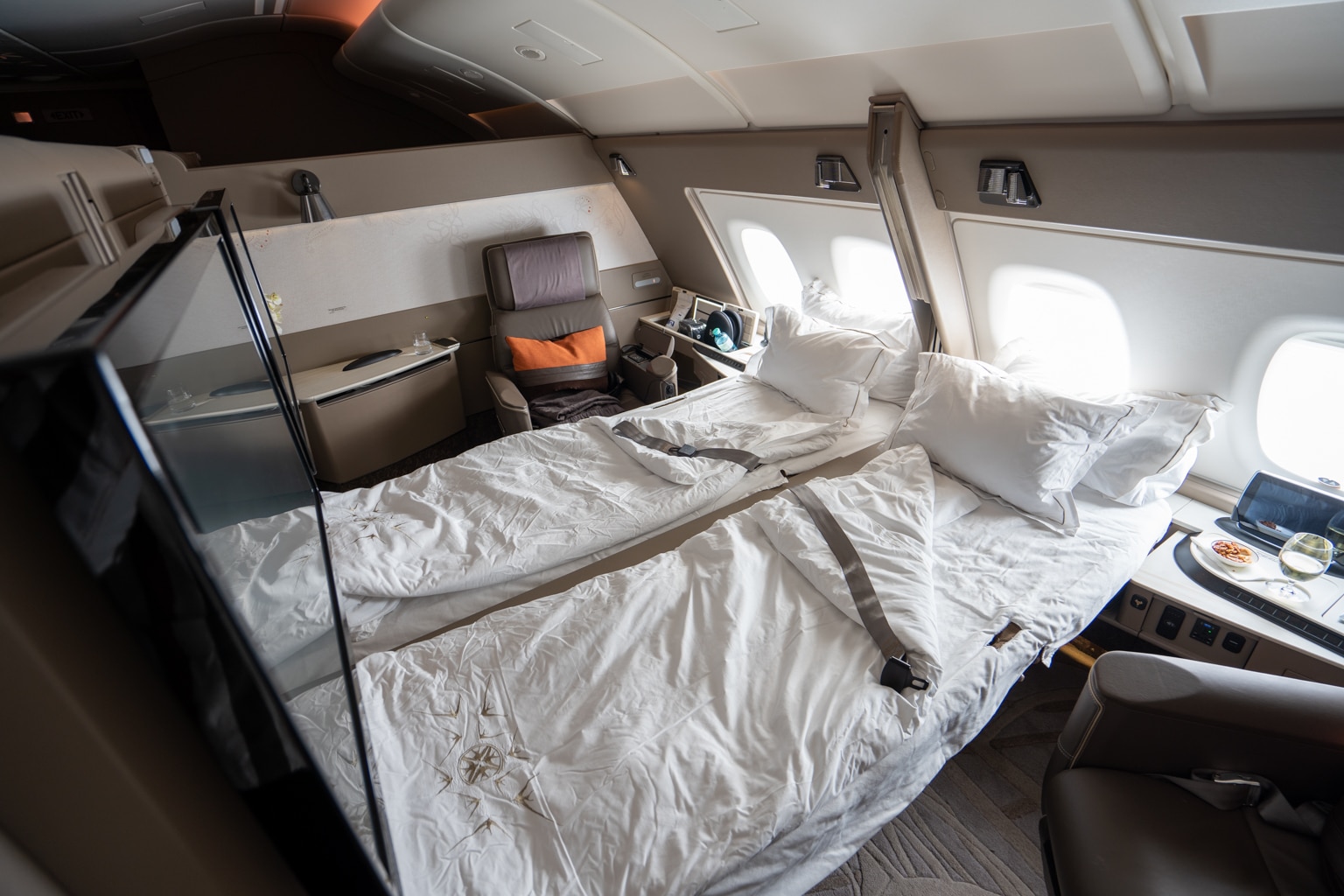
Rather, what usually happens is a painstaking drudge through day-by-day searches that occupies numerous tabs and the majority of your available bandwidth (of both the internet service provider and mental varieties).
To alleviate the pain, it helps to know both how to look and where to look.
Regarding how to look, it helps to know the most efficient ways to find the most valuable award space. Most of the time, this involves searching segment-by-segment, and piecing together itineraries from there.
Some loyalty programs, such as American Airlines AAdvantage, United MileagePlus, Qantas Frequent Flyer, Delta SkyMiles, or Alaska Airlines Mileage Plan, allow you to search for award space using a calendar. This feature saves a lot of time, as you’re able to see the lowest prices and your ideal flights without searching one day at a time.

There is also the option to use a paid service, such as ExpertFlyer, to search for space one week at a time. Of course, ExpertFlyer comes with many other benefits which are outlined in our guide to using ExpertFlyer.

Alas, if you’re not privy to a particular bovine-themed tool, you must resign to searching day-by-day and making use of search filters available to you. These filters help to narrow down the search results so you only see what you’d like to see, but this quickly becomes a time consuming process.
If I can’t find my ideal routing with a single, simple search, I’ll begin by looking for what I determine to be the most difficult segment to obtain. From there, I’ll search for availability, segment by segment, and piece together an itinerary that works.
For travel to popular destinations during peak travel seasons, I’ll begin by using FlightConnections to envision which airlines will take me on a direct flight to my ultimate destination, and then I’ll work backwards from there. After all, it’s more difficult to find ideal award space across an ocean than it is to find award space within a continent.
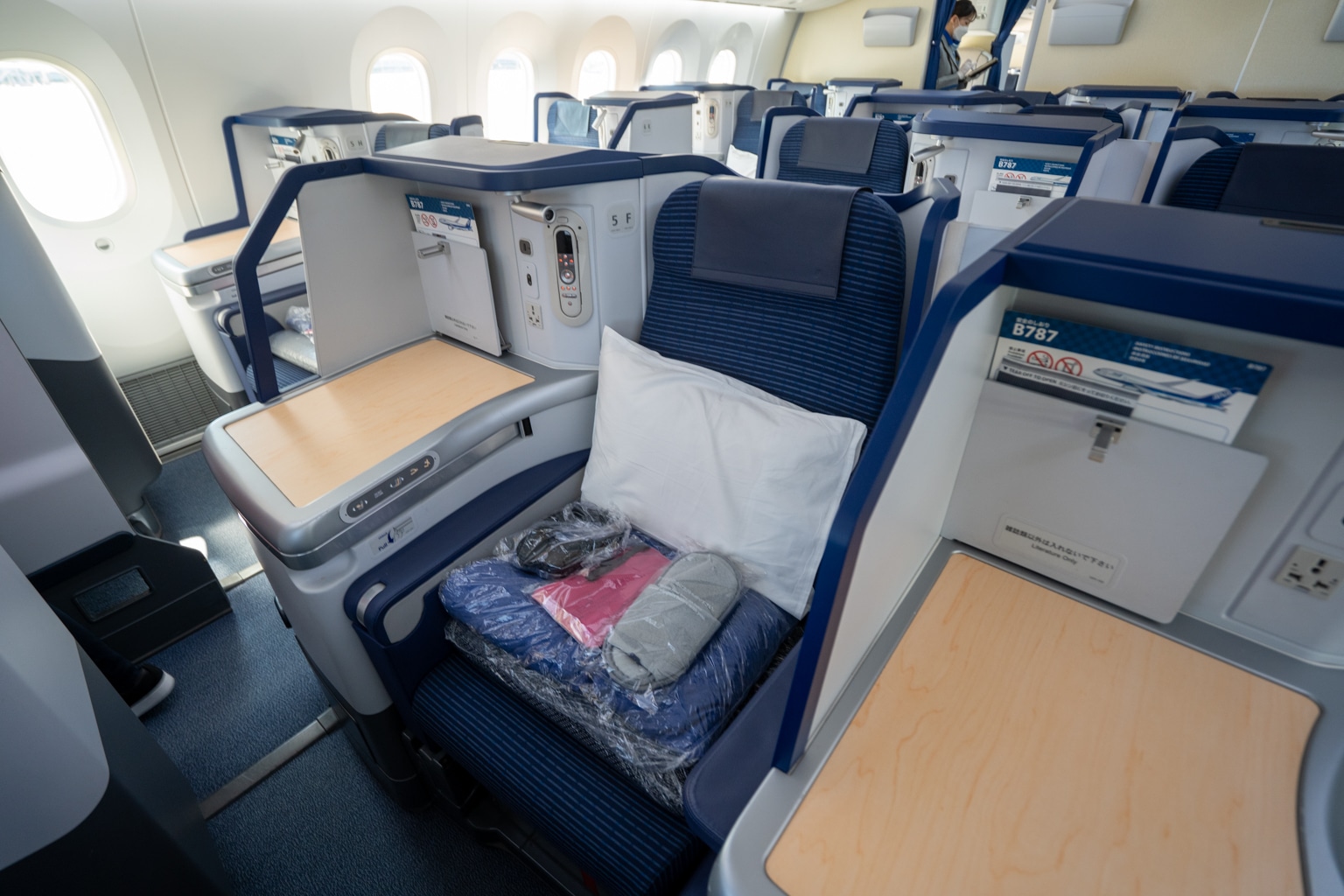
If I’m not able to find the sought-after award space, I’ll then start to think about the possible routing rules that I might benefit from.
If I can’t find a connecting flight that works, can I add a stopover somewhere for a day or two (or longer) to make the itinerary work?
If there’s no availability with one loyalty program, can I find availability with another program to make it work?
If nothing interesting comes from either program, can I piece something together with multiple programs?
This step arguably takes the most amount of time and patience. While I wish that I could generate award space out of thin air, it’s not a trick that I currently have up my sleeve, so I have to rely on creative thinking and flexibility instead.
4. Finessing
To illustrate how I’ve pieced together itineraries using the aforementioned information, let’s look at a few concrete examples of how it’s possible to make most itineraries work with a bit of finesse.
Family of Four Spring Break Trip
For this first example, a family of four from Toronto wanted to travel during Spring Break in 2023. Ideally, they wanted to visit Australia and South Korea on fixed dates, and had Aeroplan points, but not other currencies, at their disposal.
For this booking, if we were looking a year in advance, I would have been more confident that we could’ve made the trip work out as planned. However, since we were looking at fixed dates and had missed the opportunity to snag four seats at Air Canada’s lowest rate, getting them to Australia was beginning to look unlikely.

Initially, I had found a way to make it work, if they were willing to make two separate bookings. They’d travel together from Toronto to Abu Dhabi, and then two would branch off to fly to Sydney via Melbourne, and the other pair would fly to Sydney direct from Abu Dhabi.
In the end, they preferred to fly together, so I went back to the drawing board.
As they were subject to dynamic pricing with Air Canada, in theory, they could have flown to Australia, but they’d be paying two or three times what they should have paid. So, I shifted my thinking to see if they could get to South Korea first.
As it turned out, there were four business class seats available departing from New York JFK to Hanoi via Istanbul on their ideal departure date. While this wasn’t Seoul, it was at least an option to get them in the relative vicinity of their destination at a very reasonable price.

Since I was constrained by working with one points currency, there wasn’t any reasonable way to get them to Australia and onward to South Korea during a short period of time. So, I asked if they could shift their thinking to do Southeast Asia on this trip, and then save Australia for another Spring Break, which they could do with the points currently at their disposal.
This wound up being an acceptable option, once I explained why it was beneficial to split up the trips.
We found four seats in business class on the direct flight from Seoul to Toronto on Air Canada at an ideal rate, but by the time they booked, there were only three seats available at the price.

So, I suggested that they book three seats at the low price, and then one at a higher, dynamic price, instead of booking four passengers at the higher, dynamic price.
Even though they had to pay a higher cost for one passenger, and although they also had the option of using eUpgrades to soften the blow, they wound up taking the confirmed business class seat in the end.

They were happy to either fly on a low-cost carrier to bridge the gap between Vietnam and South Korea, or to add reward flights in business class with Asiana Airlines. They were also happy with taking a positioning flight between Toronto and New York, either with points or with cash.
By being flexible with their thinking, destination, and origin, we were able to preserve their Spring Break trip without breaking the points bank.
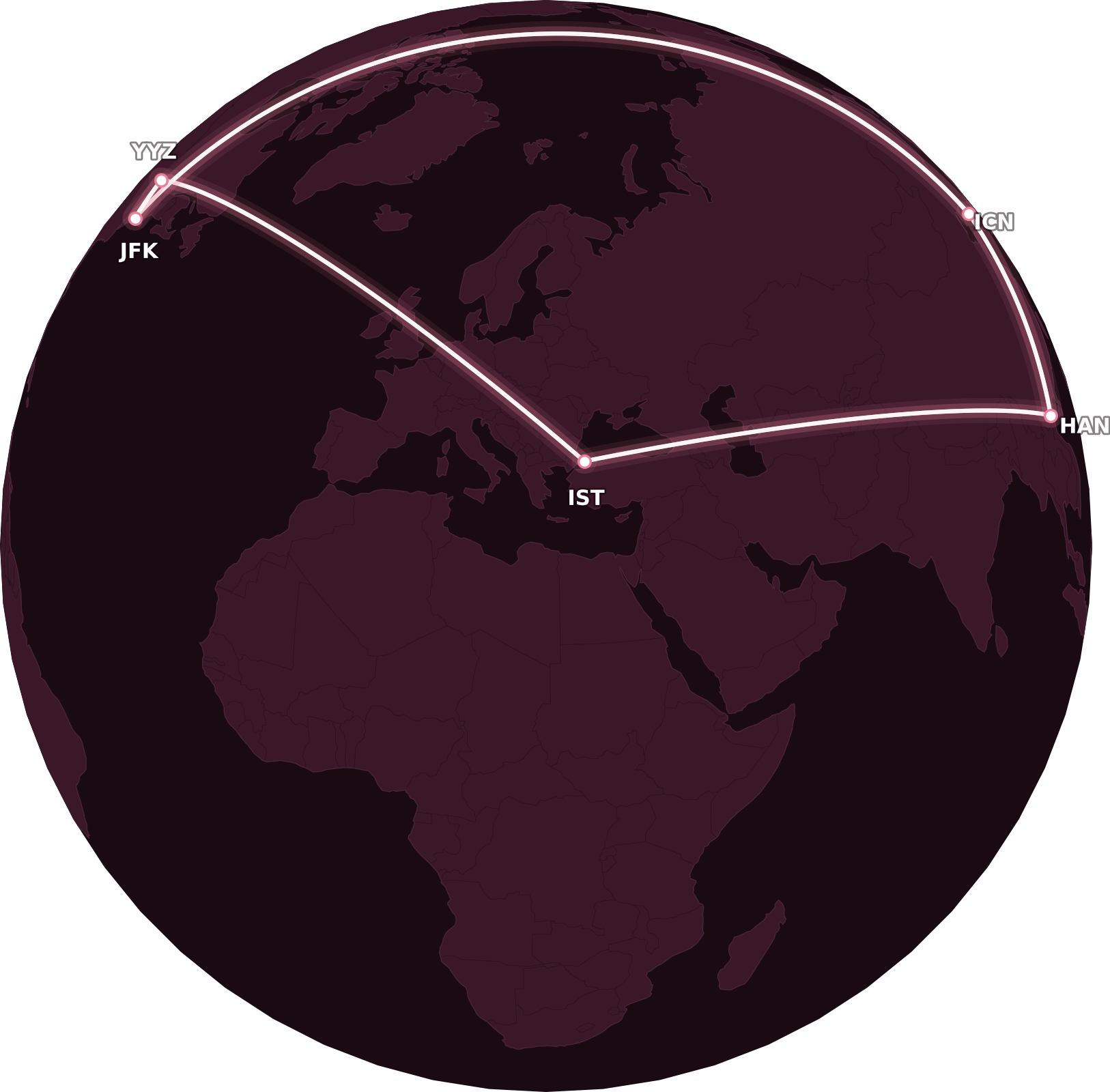
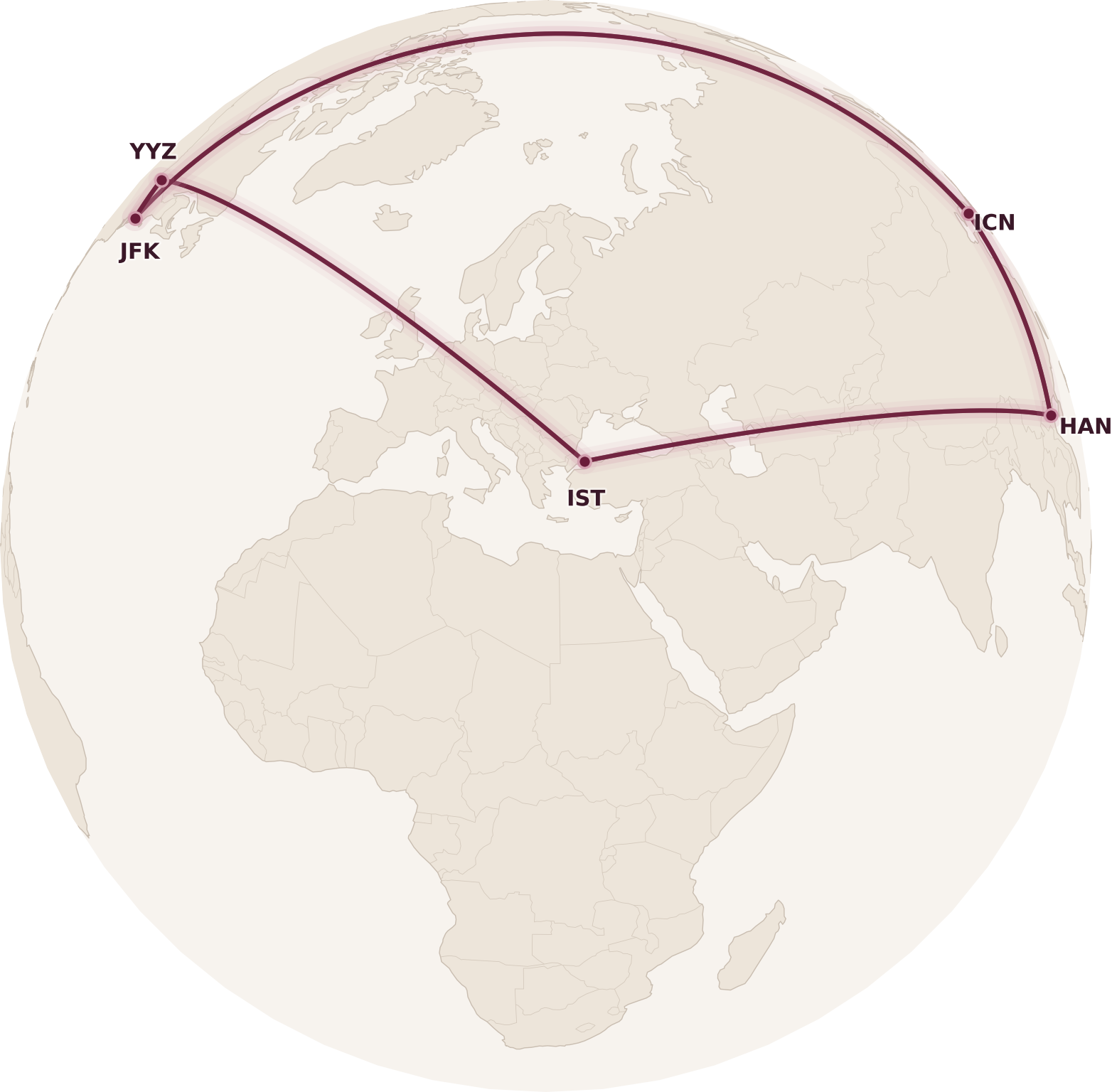
An Aspirational Trip to the Maldives
A destination that often comes up is an aspirational trip to the Maldives. Depending on the season, award space in premium cabins can be particularly difficult to come by, so this destination often presents a conundrum.

In this instance, we were looking for two seats in business class departing from Edmonton, with the goal of visiting the Maldives and Singapore in no particular order.
The pair was flexible with dates within a specific time period, which happened to be during peak demand for the Maldives, and had a stockpile of Aeroplan points, Amex Membership Rewards, and Avios at their disposal.
In this scenario, I was able to find two seats in business class from Edmonton to Singapore via Vancouver, Seattle, and Istanbul using Aeroplan for their outbound flights. They even had the option to stop in Istanbul for a few days, as there were direct flights to Singapore available over the course of a week.
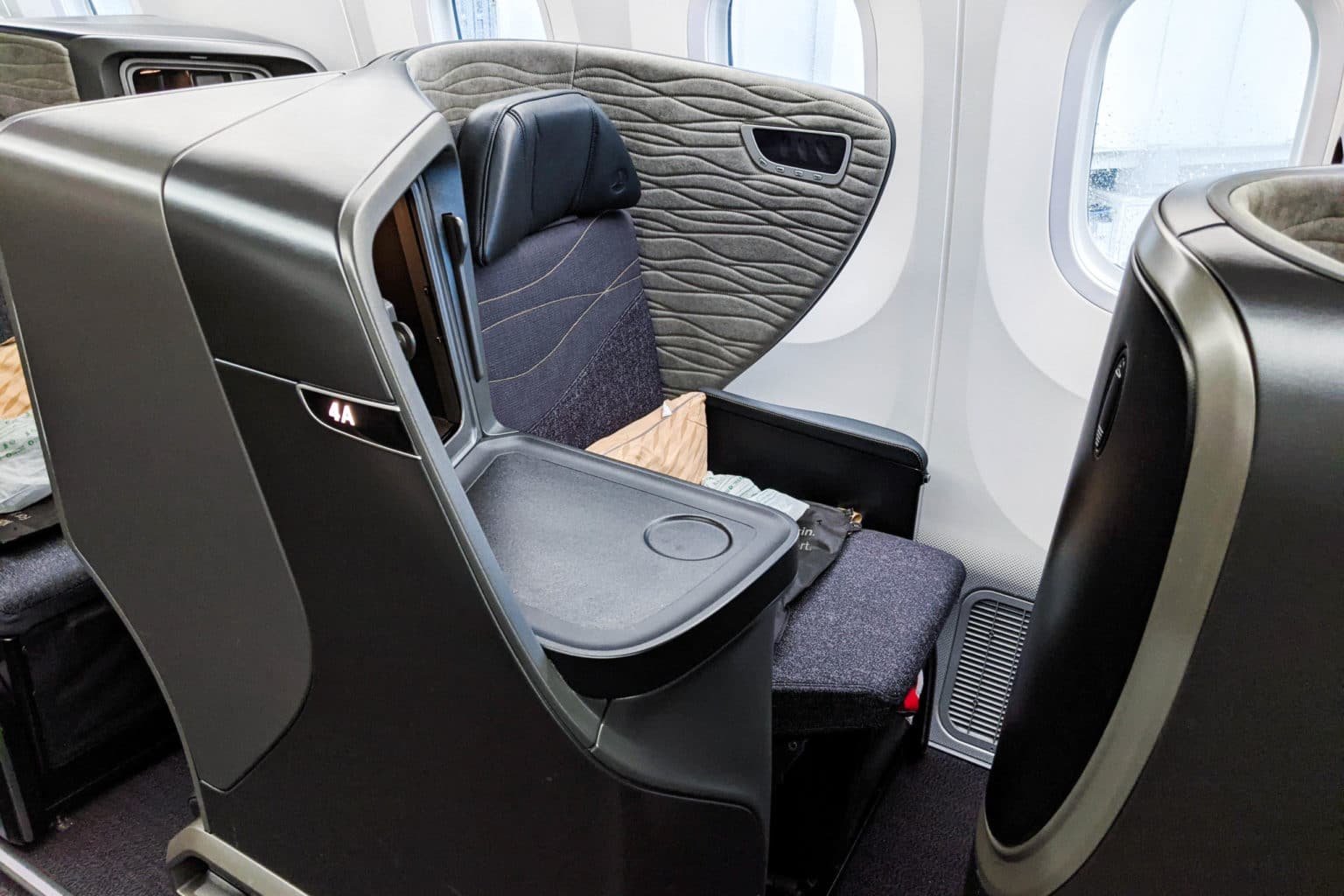
I ran into a roadblock when there wasn’t any award space in business class from any Aeroplan partner during their zone of possibility to get to and from the Maldives.
Instead, there was ample award availability with Singapore Airlines in business class as far as Colombo, Sri Lanka. Furthermore, there was business class availability with Sri Lankan Airlines using Avios both to and from the Maldives.

So, I suggested that they book from Singapore to Colombo using Aeroplan, making Colombo a stopover point, and then nesting a trip with Avios between Sri Lanka and the Maldives.
It would have also been possible to book a flight with cash in economy, as the flight is less than two hours and was relatively affordable.
We were able to piece together the rest of their return itinerary from Colombo to Edmonton via Abu Dhabi and Toronto.

This particular booking required the use of multiple points currencies, applying knowledge of available, unorthodox partners, and some creative thinking in regard to putting it all together.
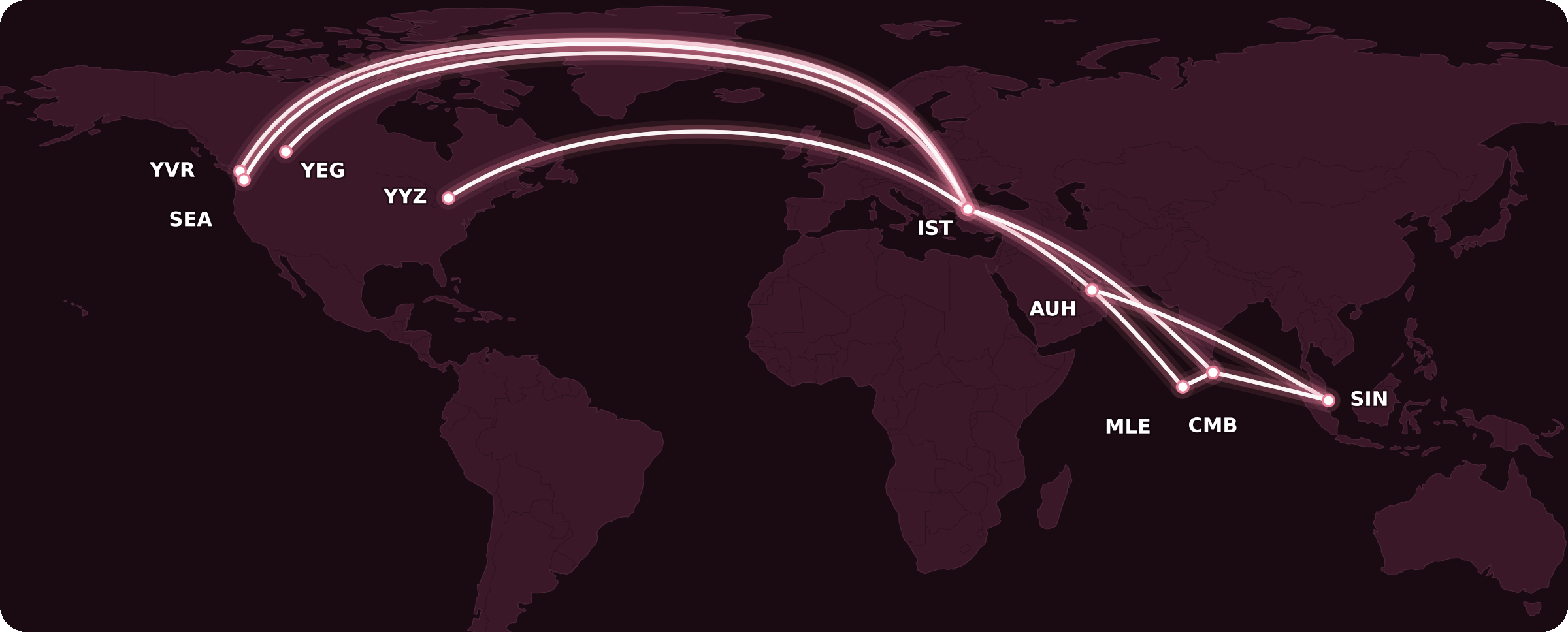
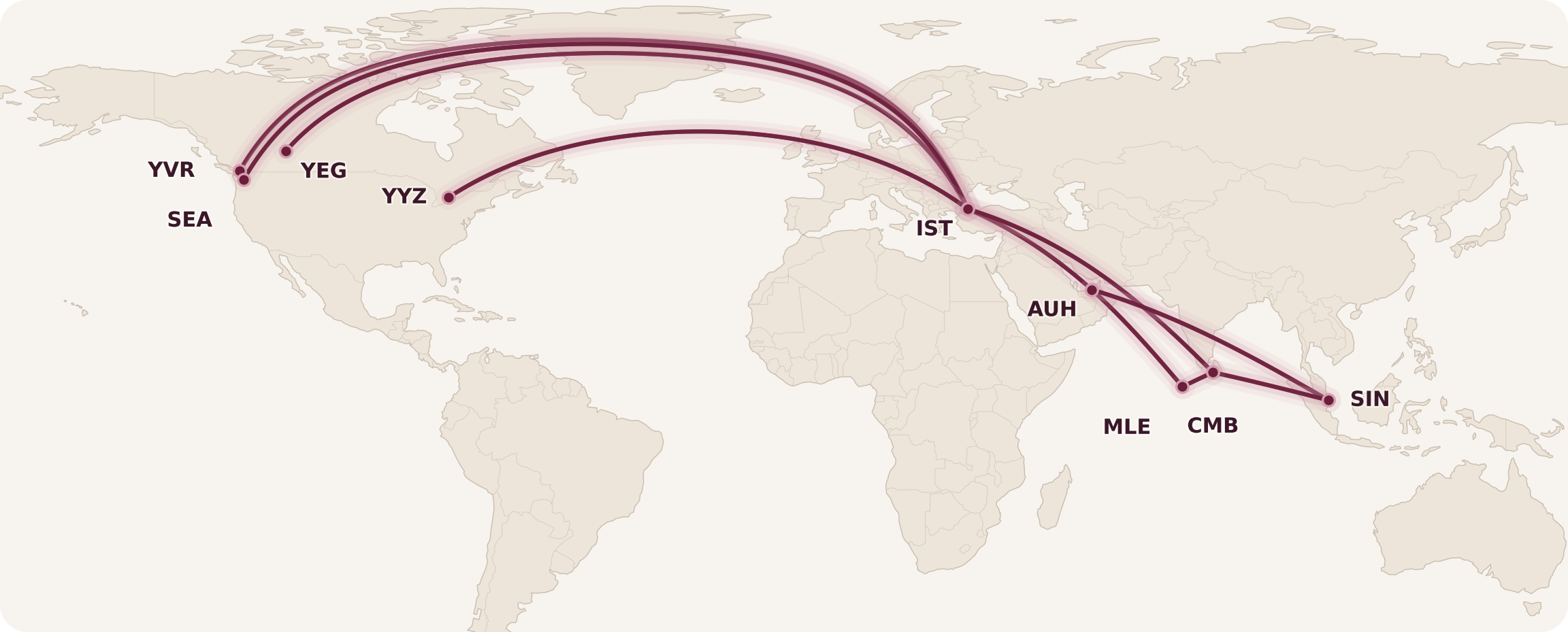
Visiting Europe
A couple was looking to visit Italy for their honeymoon, with Toronto as their departure point. They were very flexible with points currencies, having most of their available points parked in Amex Membership Rewards, as well as a handsome sum of Aeroplan points.
Their ultimate goal was to fly in Lufthansa First Class, but they wanted to have a backup plan in case Lufthansa didn’t wind up releasing any award space for their trip.
Being relatively flexible with timing also added to the likelihood of finding ideal award space, given the other factors working in their favour.
For the outbound flights, there wasn’t anything of particular interest with Avios. While there were seats available with British Airways, the idea of paying a tidy sum of carrier surcharges took away from the romance of the honeymoon.

Flying direct to Rome with Air Canada was pricing close to 200,000 points per person, which was around triple of what they had hoped to pay. We found award seats with TAP Air Portugal as far as Lisbon, but then only found award seats in business class to Rome four days later.

Wanting to be diligent with our options, we decided to have a look at Air France/KLM Flying Blue. Much to our delight, there were single-connection flights to Rome from Toronto via Paris with Air France that priced out at 55,000 Flying Blue Miles plus an additional $319 in taxes and fees.

In this case, they decided to transfer points to Air France/KLM Flying Blue after deciding that the convenience of getting to their destination outweighed the extra cost in taxes and fees, as well as the less ideal transfer ratio of 1:0.75 from Membership Rewards to Flying Blue.
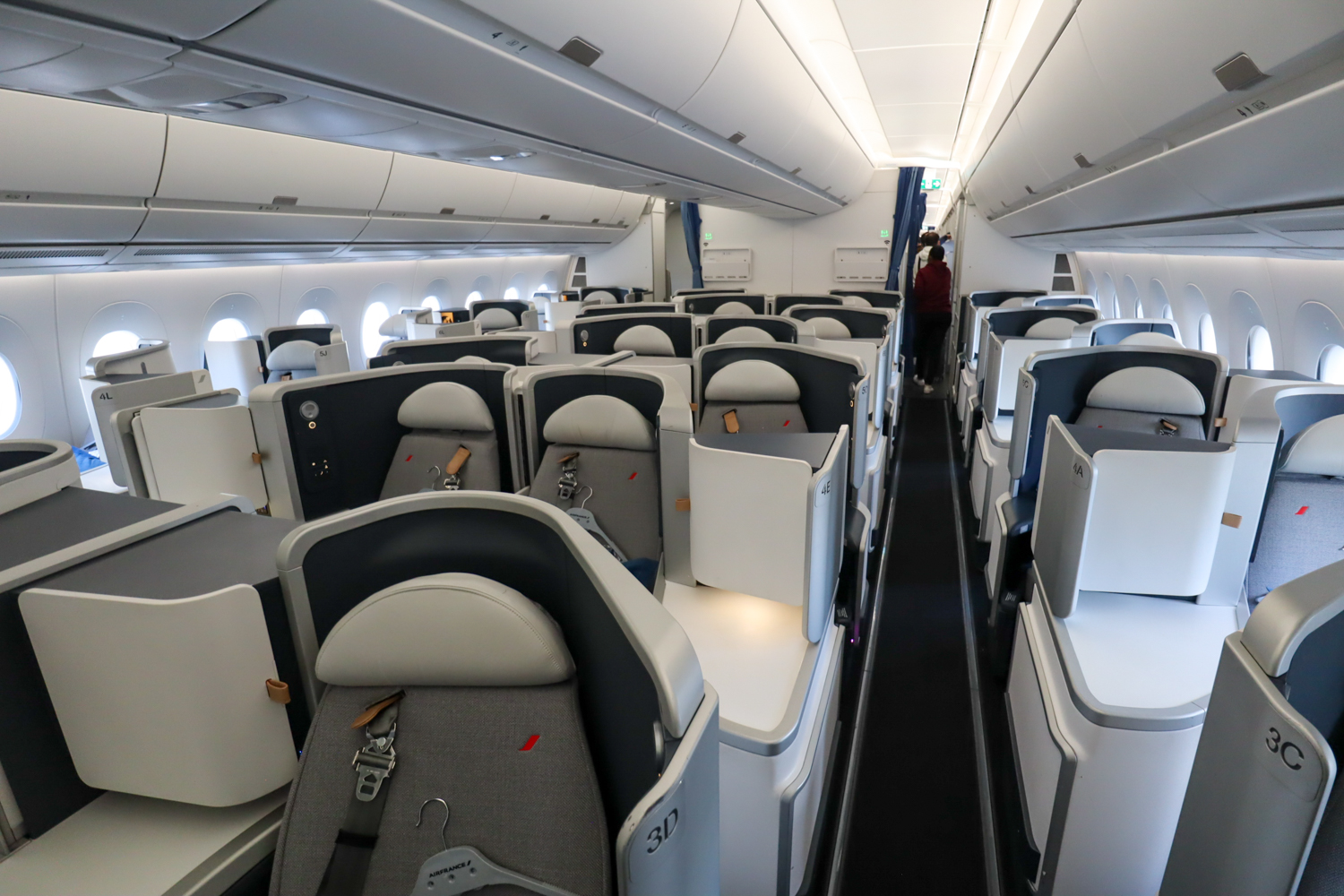
On their return, they’d actually be returning from Sardinia, so we needed to get them back to Toronto from there, while maximizing their time spent on holiday.
Neither Aeroplan, Air France/KLM Flying Blue, nor Avios offered any tantalizing options, so we had to adjust our thinking for a more elegant, creative solution.
There was space from Sardinia to Madrid using Avios, both in business class and economy, at a reasonable rate. If they booked this flight, they’d have an easy overnight connection in Madrid before heading back to Toronto on the direct Air Canada flight the next day.

While booking in business class to begin with was less than ideal, as the Air Canada flight was well into the higher end of the dynamic range, we found eUpgrade space on the flight. They adopted the “Latitude Attitude” to secure business class seats for economy prices, and wrapped up the initial booking for their trip.
Recall that their original plan was to fly in Lufthansa First Class for one or more of their flights.

We set up a number of ExpertFlyer alerts on routings that would make an easy connection back to Toronto. Sure, they’d have to pay change and/or cancellation fees, but at least they have a solid backup option in the very possible event that Lufthansa First Class doesn’t work out.
In this example, the honeymooners used three different points currencies, flexibility with dates, creative thinking, and advanced maneuvers to solidify a solid option less than three months prior to their date of departure.
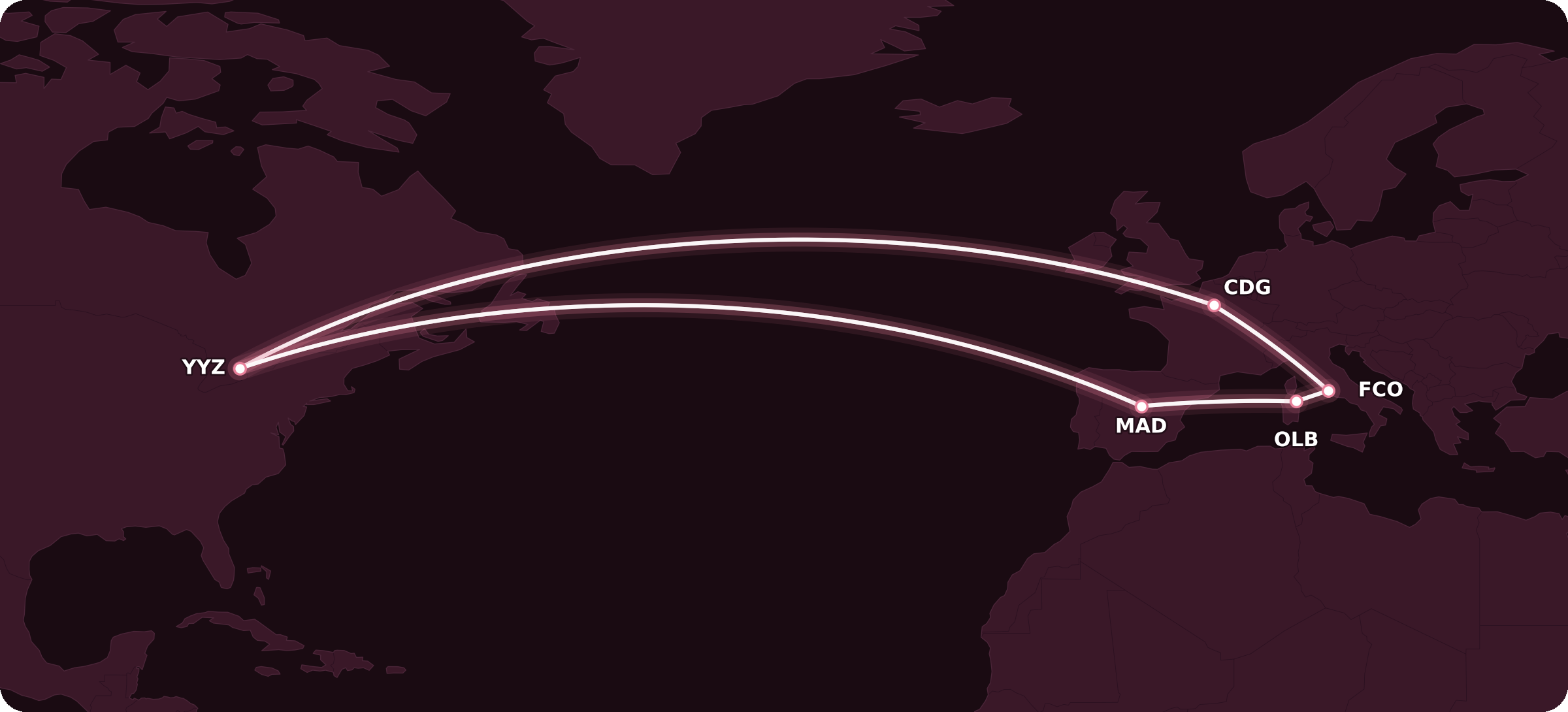
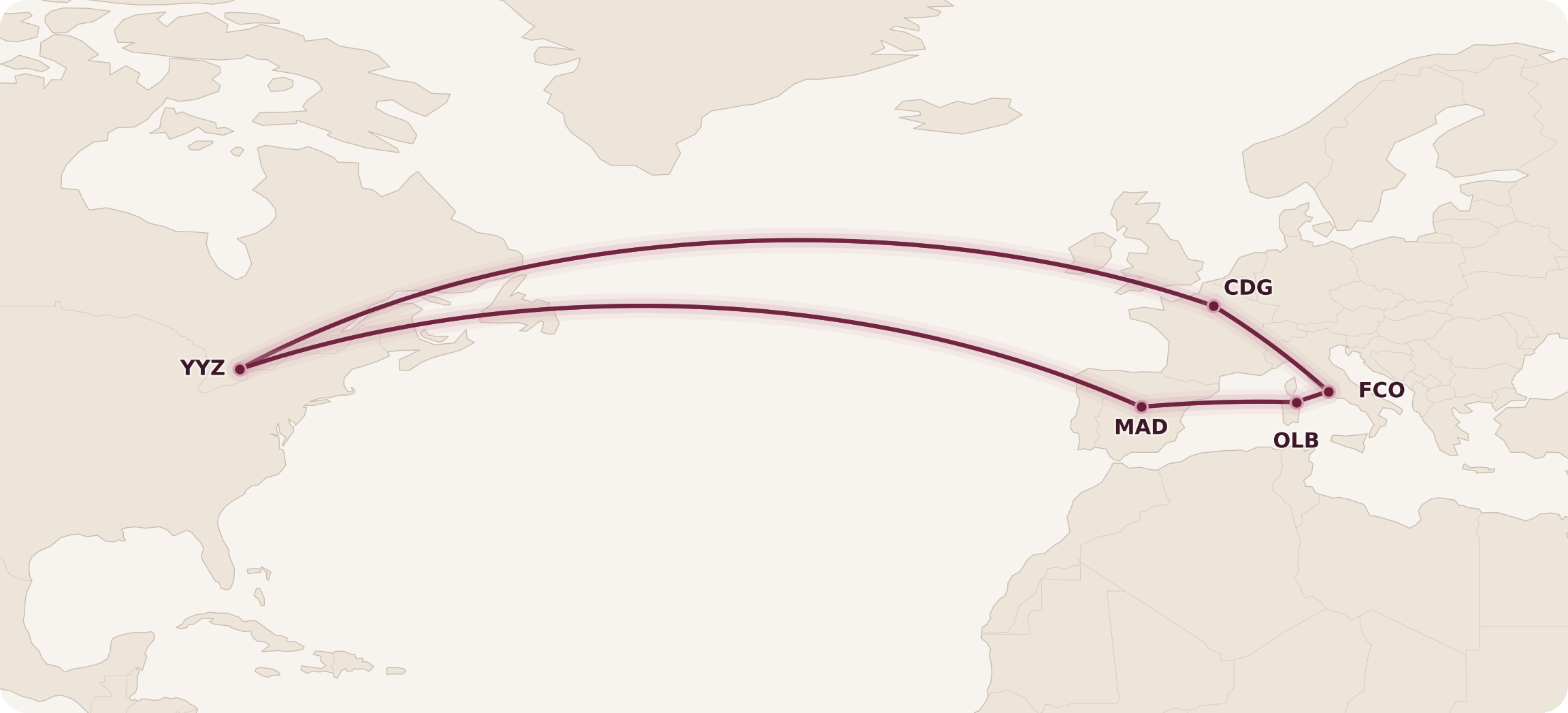
Conclusion
Very rare are the cases when you find ideal award space without much ado. Rather, piecing together flights on your ideal airlines to your preferred destinations during peak travel periods can quickly become a very frustrating exercise.
Having spent countless hours researching award space for myself, friends, family, and consulting clients, I’ve developed an approach that tends to result in fruitful results the vast majority of the time.
The most successful results come to those who have multiple points currencies at their disposal, those who are flexible with their planning, and those who utilize their knowledge and the best tools in the game to streamline the process.
I hope these tips and examples help in planning your next award journey. If you want to skip the learning curve, consider booking a Points Consulting call, and one of the Prince of Travel team would be happy to guide you through, step by step.

T.J. is curious about everywhere he hasn’t been to yet. Exploring countries by foot and connecting with locals guide his love for travel. Earning and redeeming points to jazz up the experience has become the icing on his travel cake.
First-year value
$336
Monthly fee: $15.99
• Earn 1,250 points per month upon spending $750 per month for 12 months
Earning rates
Key perks
- Transfer to airline and hotel partners
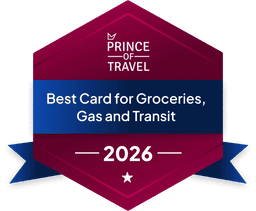
Monthly fee: $15.99
• Earn 1,250 points per month upon spending $750 per month for 12 months
Earning rates
Key perks
- Transfer to airline and hotel partners
